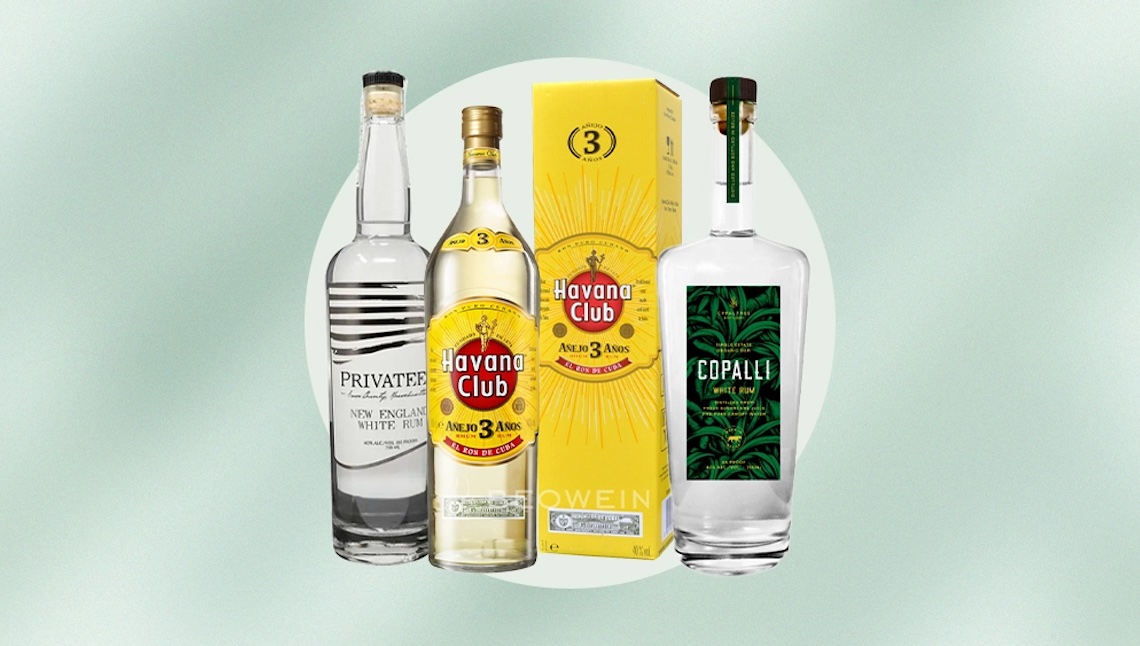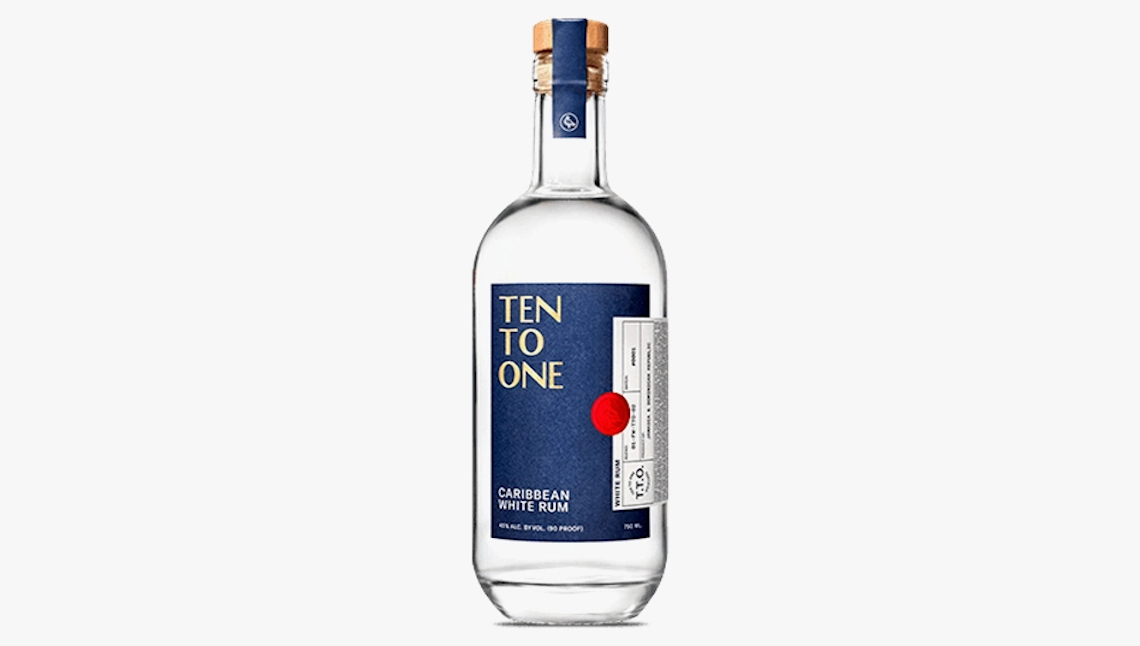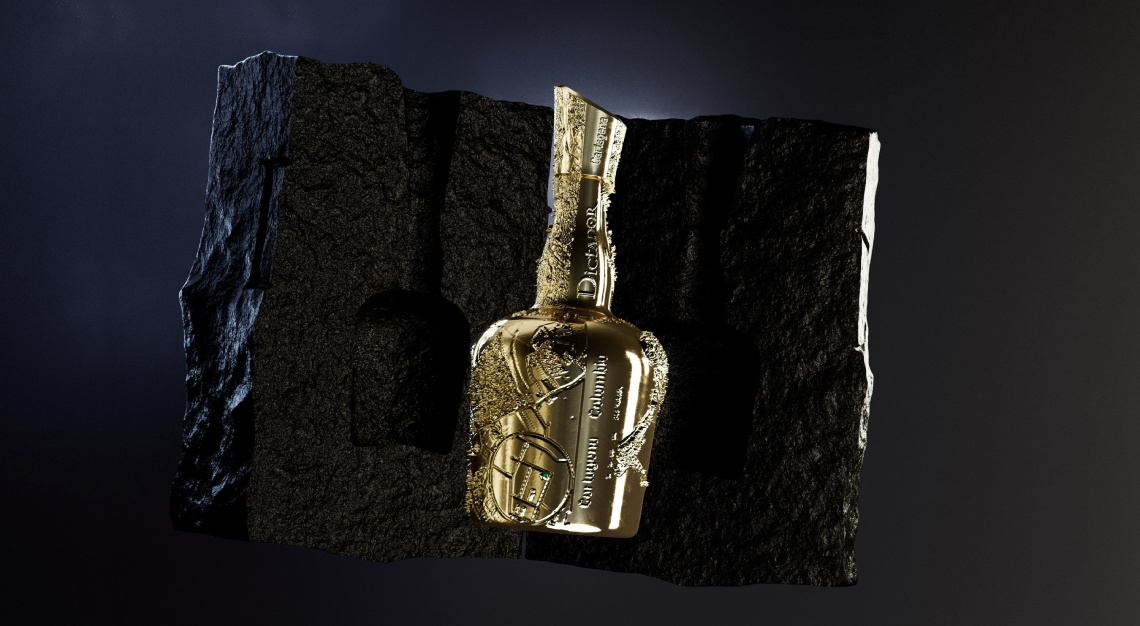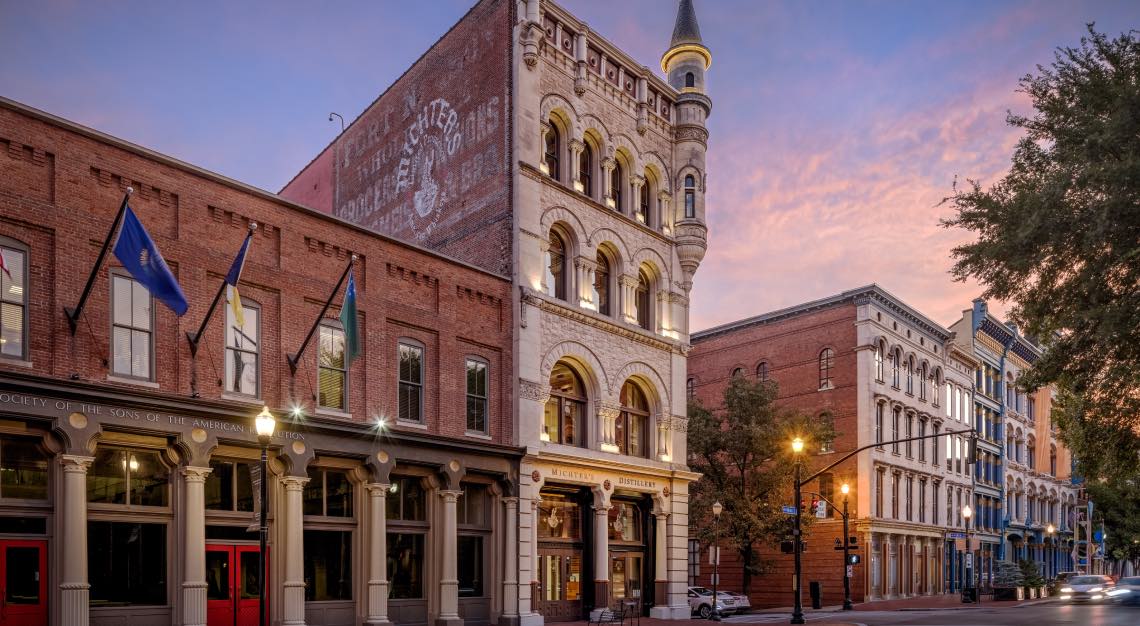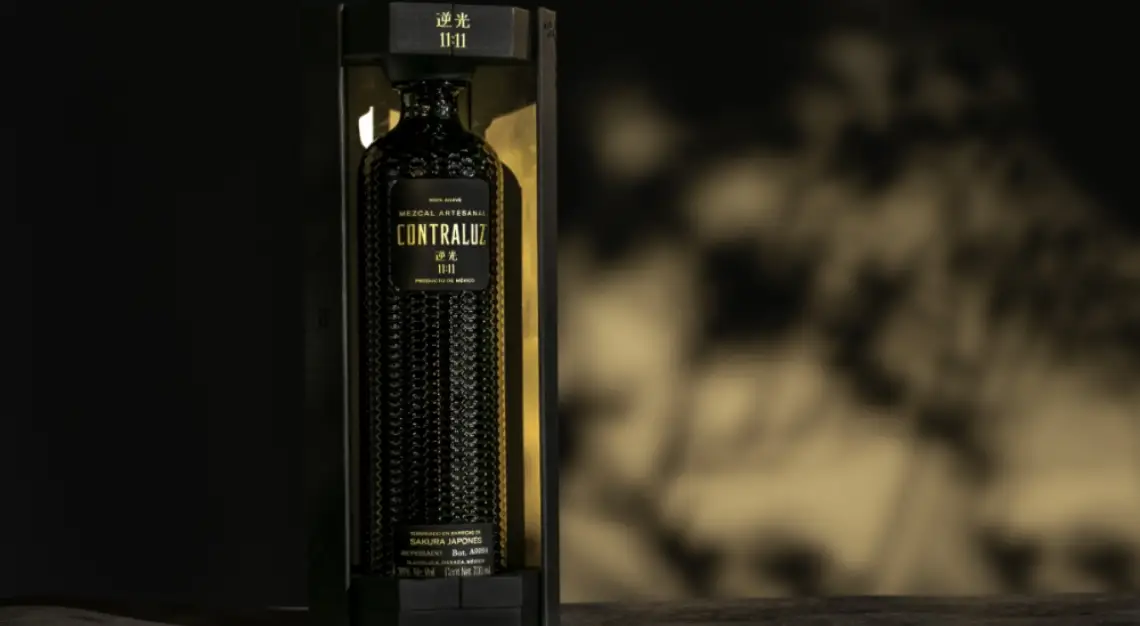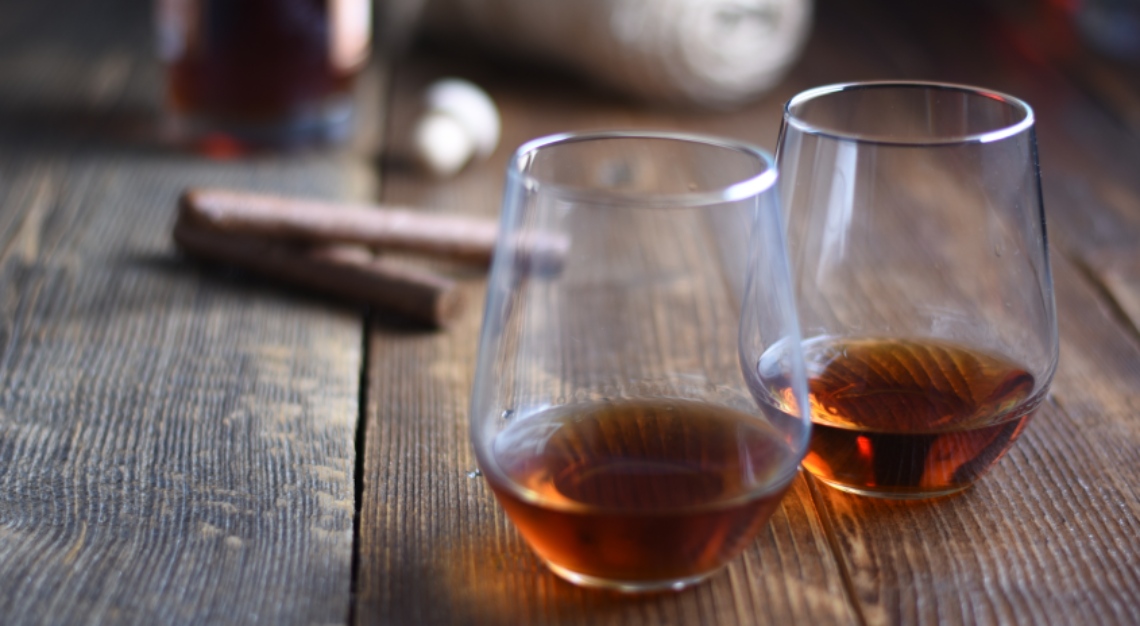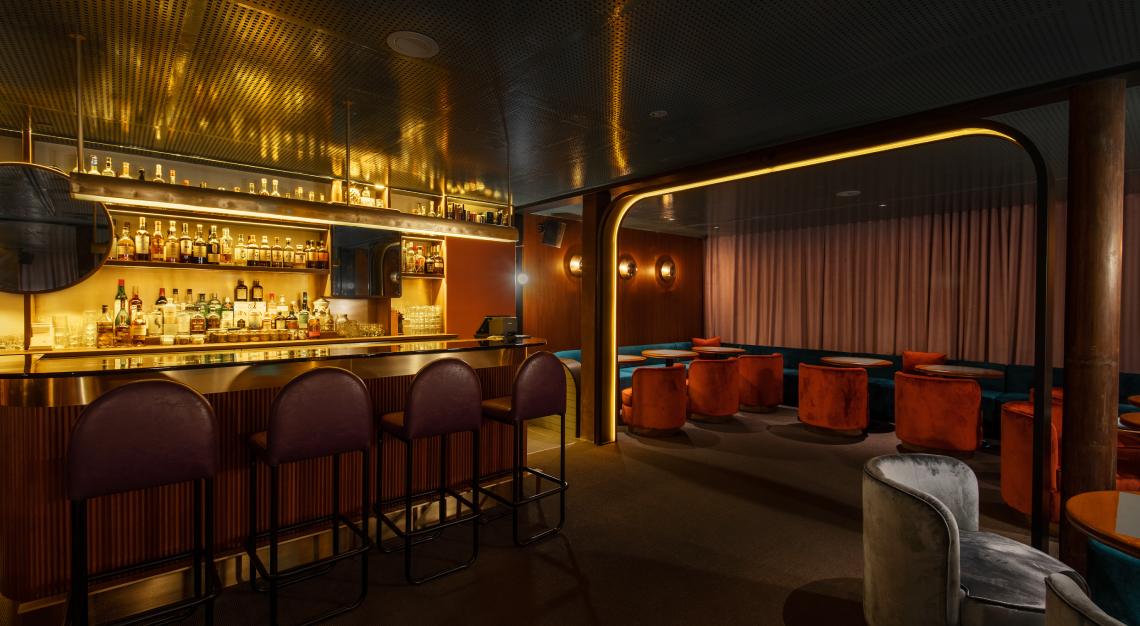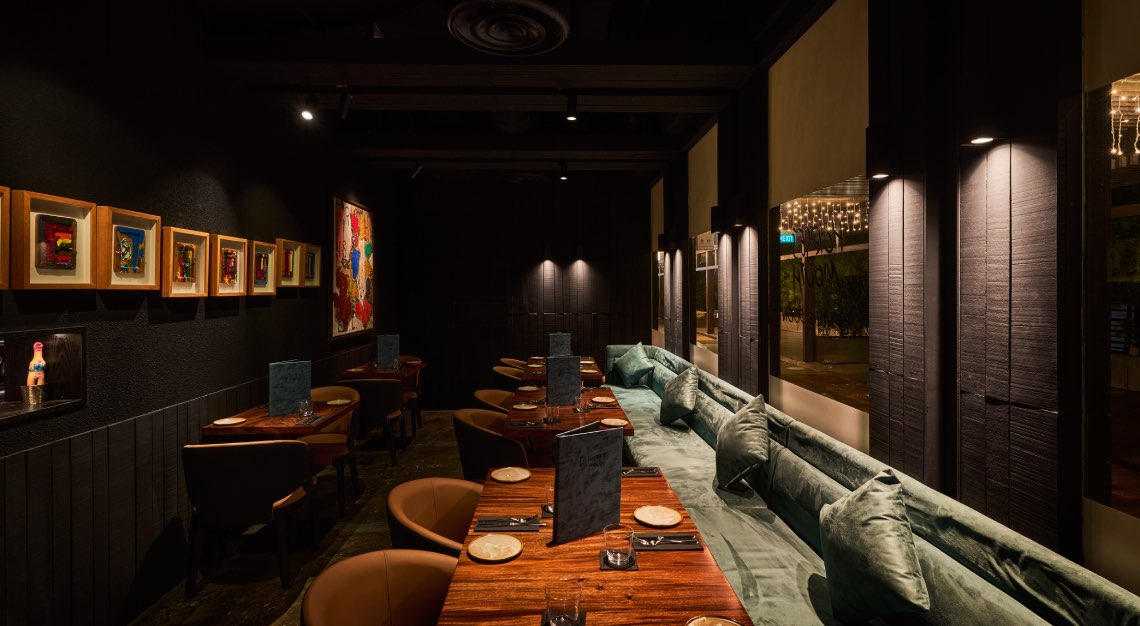From satisfying sippers to the best rum for your Daiquiri or Mojito, we’ve got you covered
Ten to One
There are those who love their rums bold, funky and flavourful, and then there are those who prefer the light, clean (dare we say “smooth”) style of rum. It’s the rare expression that can thread the needle and please both camps, but Ten to One does the trick. Founded by Marc Farrell, a native of Trinidad & Tobago who was Starbucks’ youngest VP before leaving to follow his rummy dreams, this is a blend of sourced column-still rum from the Dominican Republic and Jamaican pot-still rum. The balance of the lighter, sweeter Dominican distillate and the pot still funk is just about perfect, with its notes of caramel, pineapple and overripe banana able to appeal to novices and connoisseurs alike. Bottled at 45 per cent ABV (most white rums are 40 per cent), it’s very flavourful and adds more than just alcohol to a cocktail. It really stands out in a Daiquiri or Cuba Libre, and also makes simple drinks like highballs or rum and tonics more memorable. And of course, it’s beautiful on its own with nothing more than a glass, a sunset, and perhaps an ice cube for company.
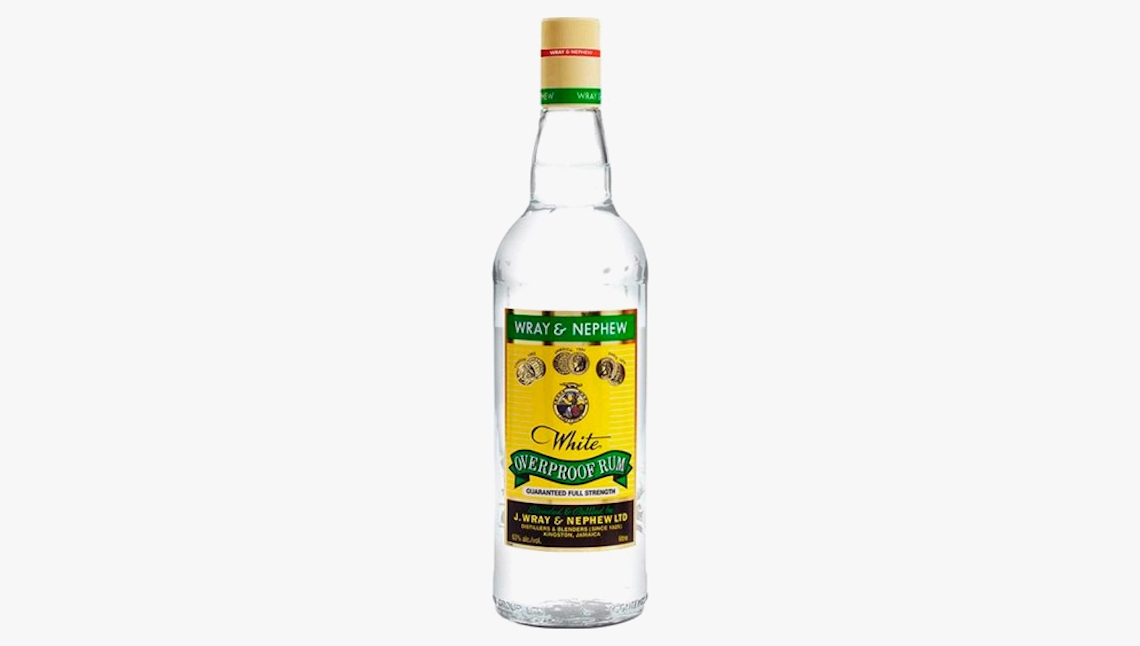
Best Jamaican white rum
Wray & Nephew Overproof
Jamaican pot still rums, with their funky, earthy flavour profiles, get the lion’s share of love from rum cognoscenti, and with good reason. But the most widely consumed Jamaican rum in Jamaica is this classic—in fact, it’s considered the unofficial national spirit. A blend of pot and column distillates bottled at 63 per cent ABV without a minute of barrel ageing, it’s surprisingly sippable given the proof, with light tropical fruit notes of banana and coconut mingling with vanilla, molasses, and just a touch of funk. On the rocks with a squeeze of lime, in an array of cocktails or in the Jamaican style, with Ting grapefruit soda, there’s no wrong way to drink this one.
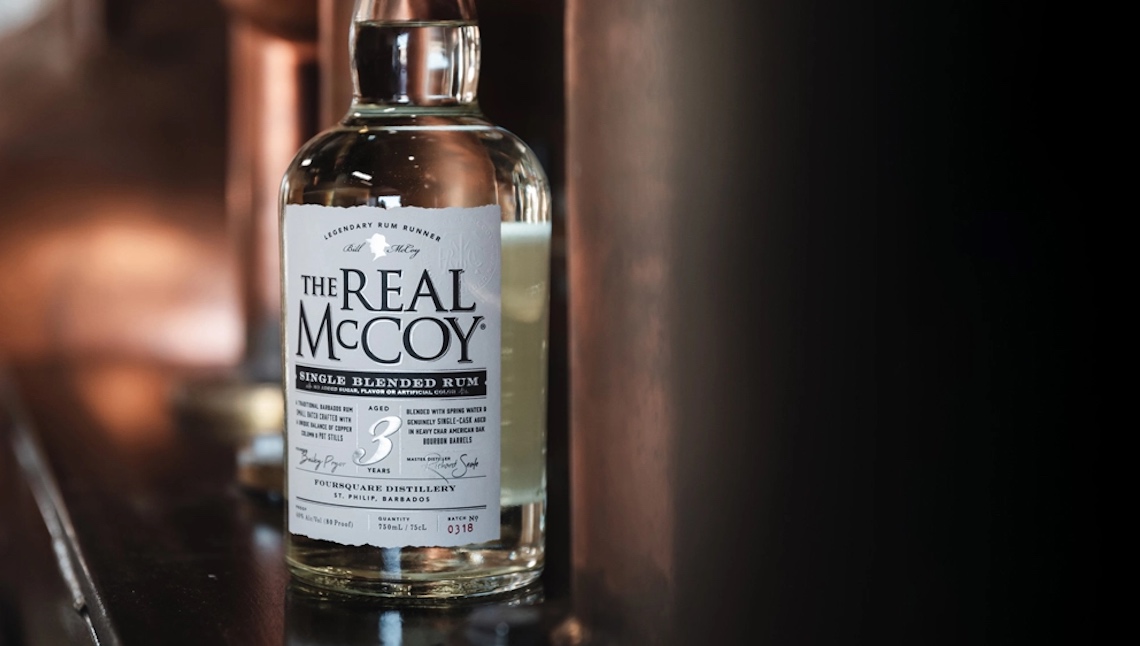
Best Barbados white rum
The Real McCoy 3 Year Aged
Barbados’ Foursquare distillery, helmed by Richard Seale, produces aged rums that send serious rummies into spasms of joy and frenzied hunts for limited edition bottles. The Real McCoy line (named after a famous bootlegger of the 1920s) is distilled at Foursquare is more affordable and easier to find but doesn’t skimp on the quality. This blend of pot and column-distilled rum is aged in American ex-bourbon oak for three years and then charcoal filtered a single time to remove the colour while retaining as much flavour as possible. That said, the flavour isn’t overwhelming, but it is delicious—vanilla, coconut, banana, almond, a touch of citrus, and just a hint of wood on the finish. Ideal in a host of cocktails, it’s also terrific on the rocks.
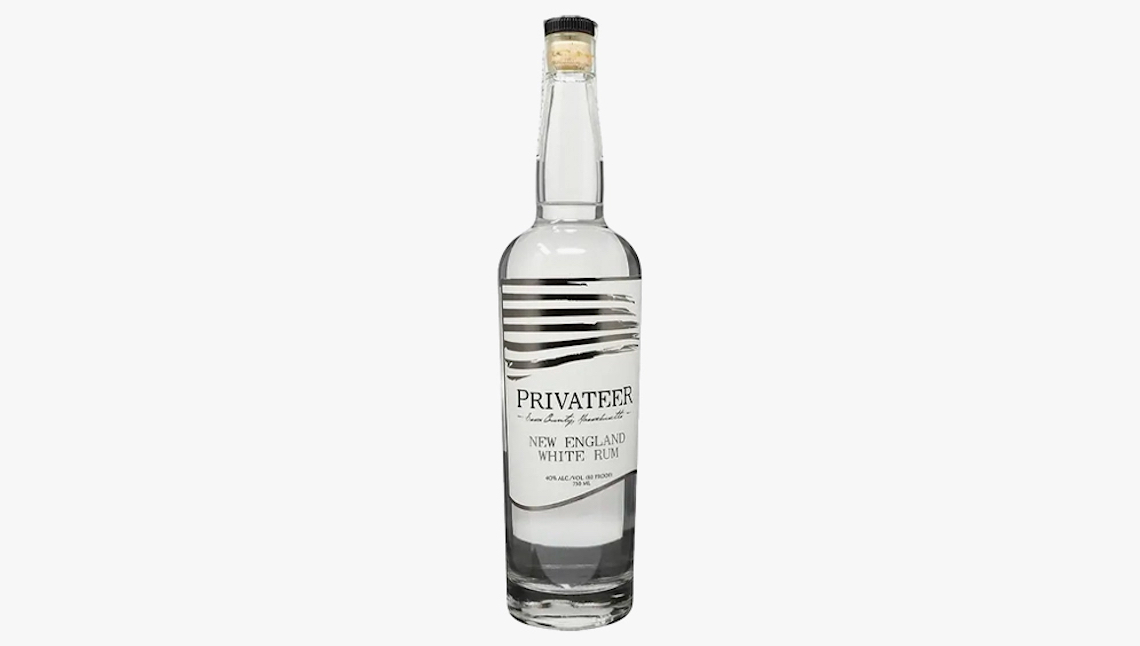
Best American white rum
Privateer New England White Rum
Back when America was still part of the British Empire, New England was a major rum-making centre, and distilleries survived in the region well into the 20th century. In the 2000s, rum made its return to New England, and one of the most acclaimed brands is the Massachusetts-based Privateer. Its silver rum is pot and hybrid-distilled from molasses, and rested in stainless steel rather than wood, so no filtration to remove colour is necessary. It’s a simple, no-nonsense, beautifully executed rum, with notes of vanilla, caramel, banana, and just a hint of earthiness on the finish. For an 80-proof rum, it’s quite flavourful, and it pairs very well with citrus—try it in a Daiquiri or rum sour.
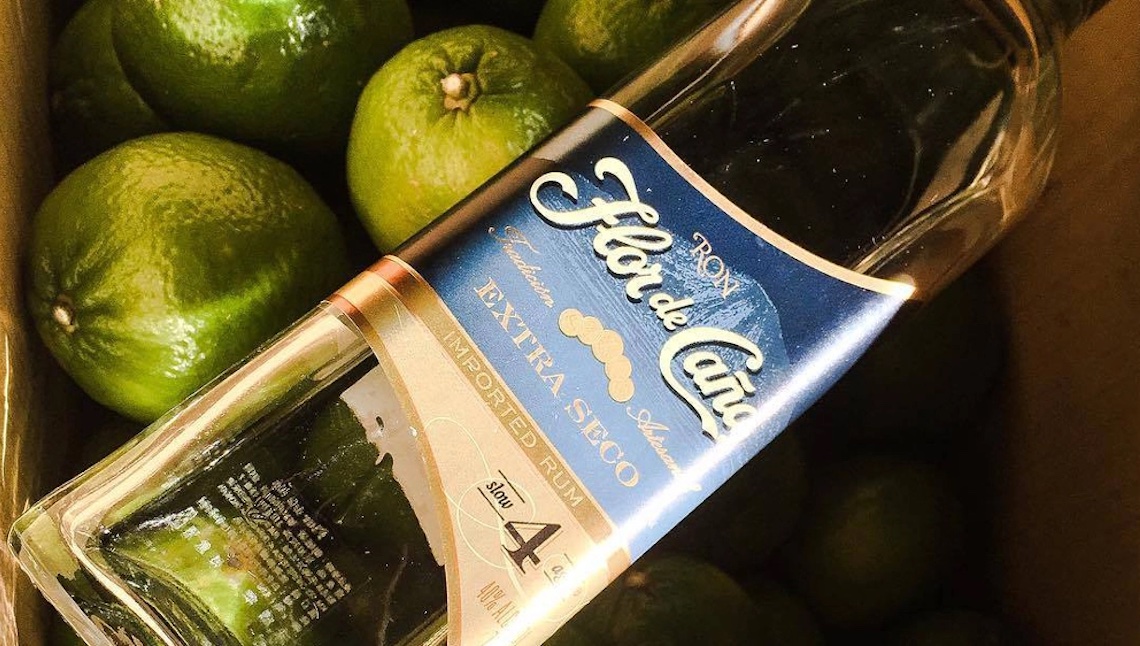
Best South American white rum
Flor de Caña Extra Seco 4
Flor de Caña is sneaky when it comes to its labels. Look closely at the “4” on the bottle of its Extra Seco rum, for instance—there’s no “years old” next to the number because that’s not necessarily how old the rum actually is (the brand does claim the average age of the rum to be four years old, but age statements usually refer to the youngest liquid in the blend). But unlike most other South American rums, there’s no sugar, glycerin, or other chemicals added post-distillation (or pre-distillation, for that matter). That makes Extra Seco (“extra dry” in Spanish) an outlier in the region, but a delicious one. This Nicaraguan rum is aged in ex-bourbon barrels and filtered to remove all colour (it appears unaged), it’s clean and lightly sweet, with notes of citrus and caramel along with hints of grassiness and a touch of astringency. A lightly herbal flavour shows up on the finish. This is an elegant rum, an excellent addition to cocktails across the board—it may not change your life, but the distillery does change plenty of lives for the better through fair trade initiatives and sustainable production processes.
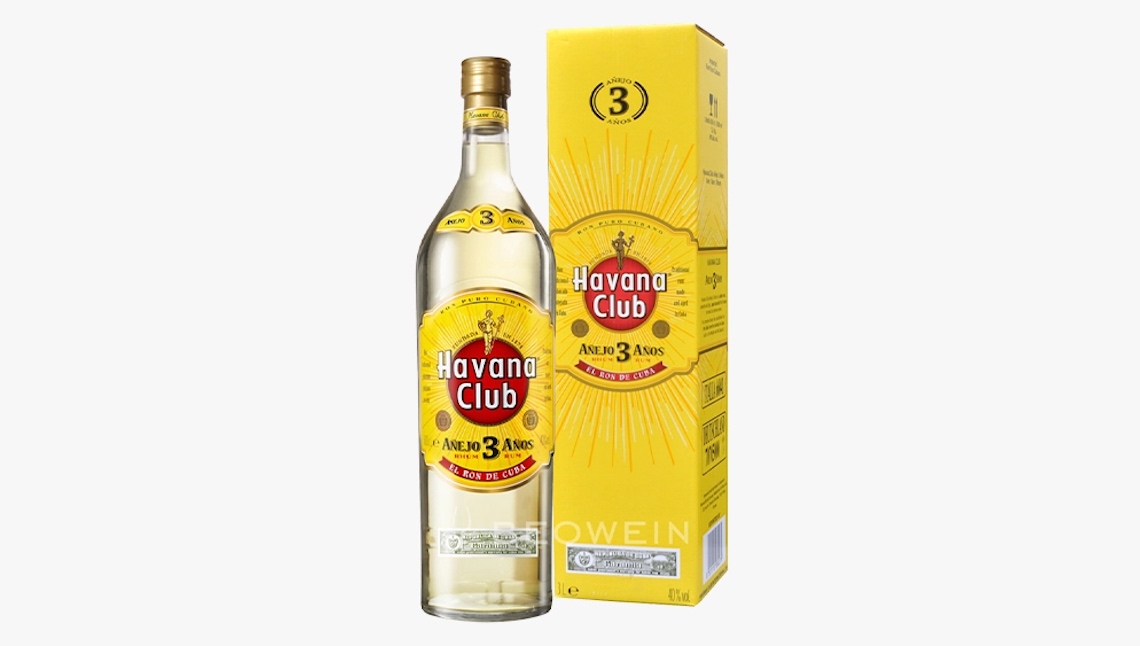
Best rum for Daiquiris
Havana Club 3 Year Old
Pretty much anything goes with Daiquiris nowadays as far as which rum can be used. But the Daiquiri was invented in Cuba, and a classic Daiquiri should have a rum in the Cuban or Puerto Rican style—light and mellow, blending with the lime and sugar without proclaiming its presence too loudly. And this classic Cuban rum fits the bill beautifully. This column-distilled spirit is aged for three years and then filtered, leaving behind a flavour that’s citric, lightly sweet, bracing, and a wee bit astringent. It’s not necessarily the kind of thing you want to sip (although it’s quite pleasant with a rock or two), but it makes the Platonic ideal of a Daiquiri. (Note: this is the made-in-Cuba Havana Club, not Bacardi’s Puerto Rican version that’s easier to find in the States but not as good a rum.)
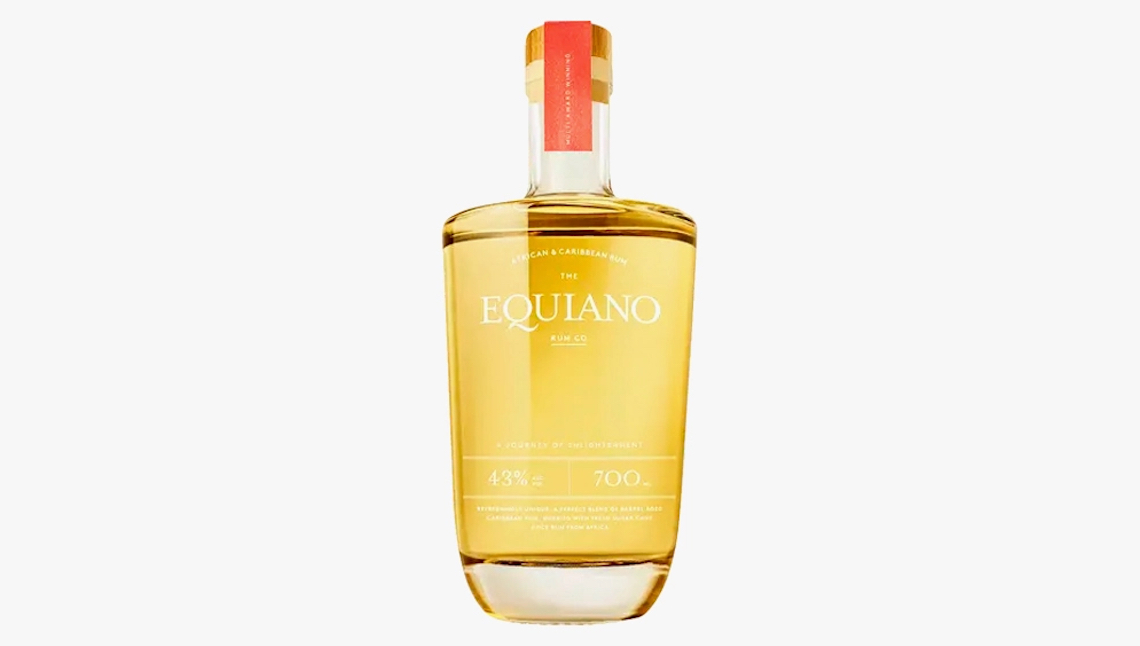
Best white rum for Mojitos
Equiano Light Rum
The Mojito is a rum drink, of course, but the rum really acts as a supporting player, letting the mint, fresh lime juice and sugar hog the spotlight. That doesn’t mean you shouldn’t use a top-notch white rum, of course. Equiano is a one-of-a-kind blend of Caribbean molasses-based rum, aged at least three years, and unaged cane juice rum from Gray’s distillery in Mauritius, an island off the southeast coast of Africa. The aged and unfiltered Caribbean distillate means this isn’t quite a white rum. Then again, there are no rules dictating what constitutes a white rum (or gold or dark rum for that matter), and Equiano’s light, delicate flavour profile fits best in the white rum category. Bottled at 43 per cent ABV, it’s a beautiful combo of sweet, slightly oaky Caribbean influence with vanilla and grassy notes from the Mauritian rum. It slides beautifully into a Mojito, complementing and rounding out the other ingredients without overwhelming them. And it’s also great on the rocks with a squeeze of lime, should the fancy strike you.
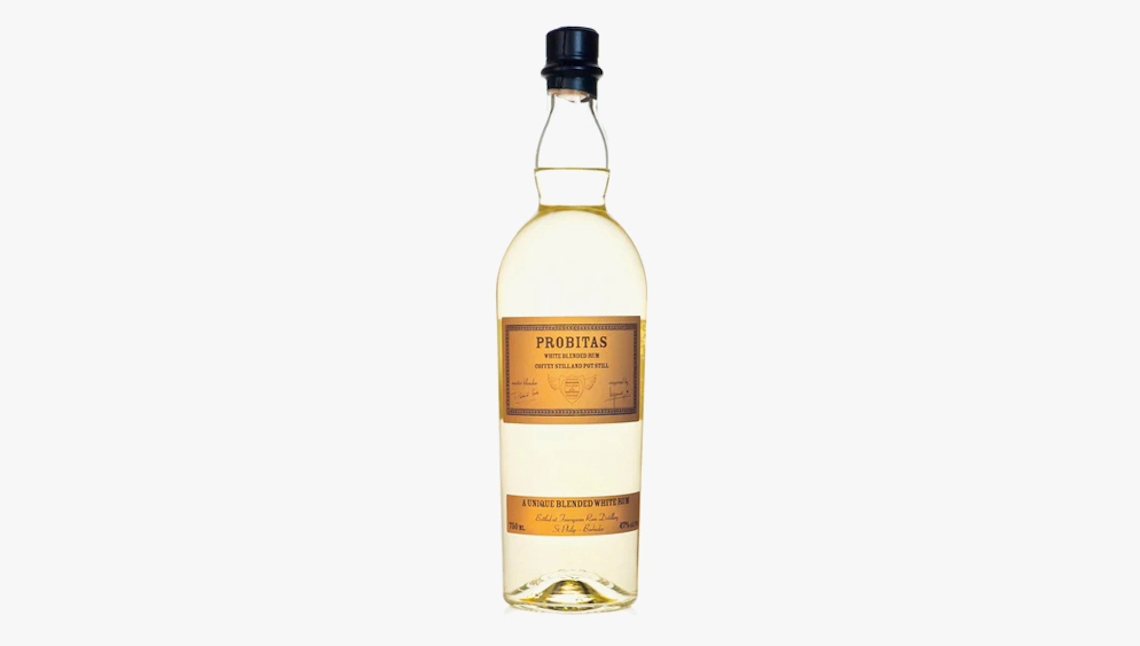
Best white rum for Piña Coladas
Probitas
This rum is way too good to only use in Piña Coladas, but it’s one of the few white rums that doesn’t get lost amidst the pineapple juice and coconut milk that dominate the drink. This is the rum equivalent of, oh, the Beatles and the Stones making a record together. It’s a blend from two of the finest rum distilleries in the Caribbean—Foursquare in Barbados and Hampden Estate in Jamaica, where rum has been produced since the 1750s. The blend contains un-aged pot still and old-school Coffey still rums, as well as a two-year-old pot still rum that lends the blend its light golden colour. Bottled at a hefty 47 per cent ABV, it’s as sippable as many aged rums, with a viscous mouthfeel and notes of banana, molasses, pineapple, and a hint of vegetal funk on the palate. It’s a powerhouse that can make its presence felt in just about any rum cocktail into which you throw it, from an El Presidente to a Hemingway Daiquiri to kitchen-sink drinks like a Zombie—and of course a Piña Colada. It’s quite the excellent sipper as well.
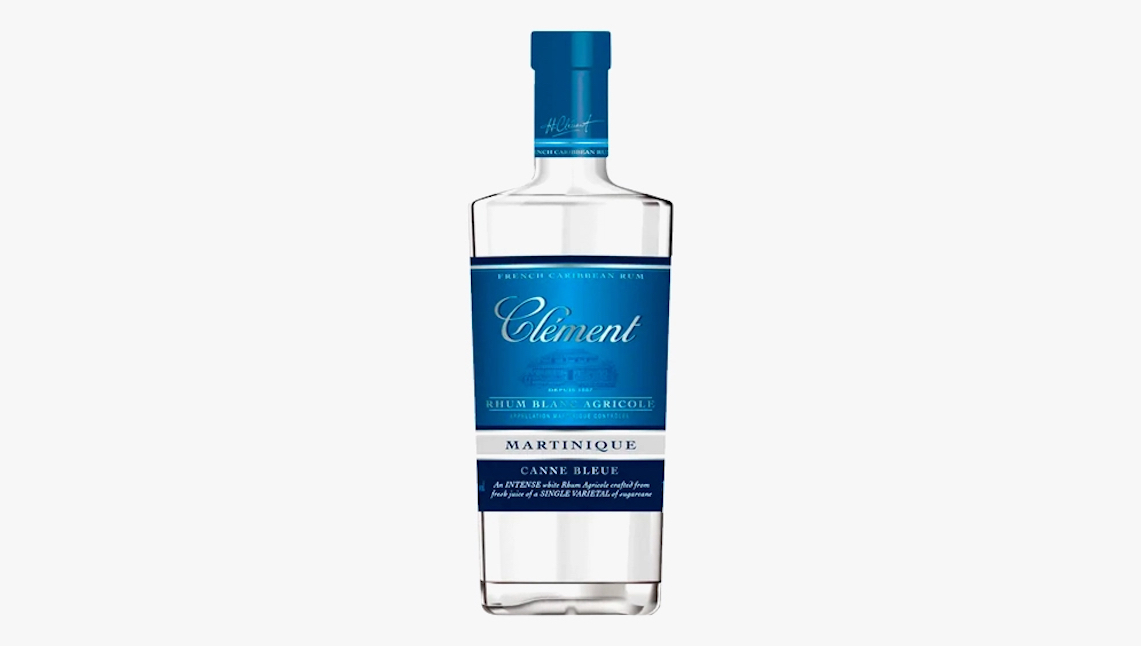
Best rhum agricole
Rhum Clement Canne Bleue
Rhum agricole (“agricultural rum” in French) is a lot different from the rums most of us are familiar with. Distilled from fresh pressed sugarcane juice rather than molasses, which is a sugarcane by-product, the finished rum has a distinct flavour profile as a result—grassy, lightly sweet, a bit vegetal. The best-known and most highly regulated rhums agricole come from the island of Martinique. Rhum Clement has been making some of the most acclaimed rhums agricole there since 1887 and its Canne Bleue expression (so named because it’s distilled from a single cane varietal, known as blue cane) is a beautiful example of the category. Column-distilled and rested in stainless steel tanks for six months, it has a powerful vegetal aroma. On the palate, herbal notes and peppery spice are underpinned by vanilla and a light fruity sweetness. Bottled at 50 per cent ABV, Canne Bleue makes its presence felt in any rum cocktail, but try it first in a ‘ti Punch, which is popular in the French islands—a couple of ounces of rhum, a little cane syrup, and a quarter-sized disc of lime peel, expressed over the glass and then dropped in, no ice needed.
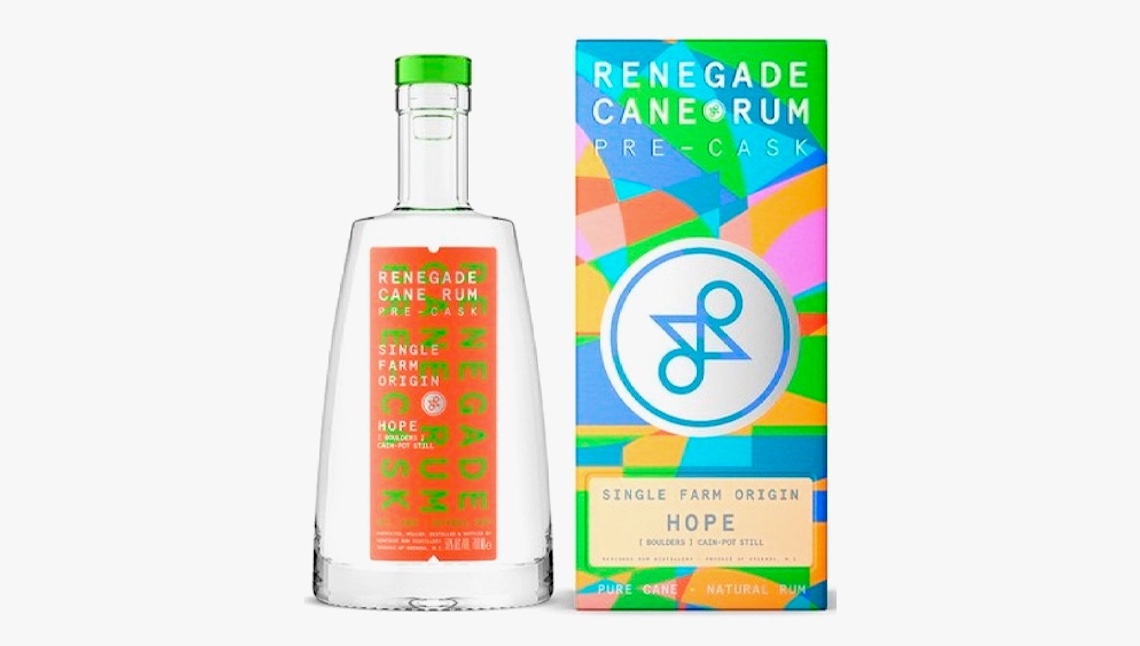
Best craft white rum
Renegade Pre-Cask Single Origin: Hope
Mark Reynier, Renegade’s founder, made his name in whisky, first with the revived Bruichladdich distillery in the Islay region of Scotland and then with Waterford in Ireland. His ethos with both brands was to emphasize how terroir impacts spirits as it does with wine and to do so with complete transparency, including granular details of every aspect of the whiskies’ creation, from the farms where the grains were grown to the ageing process. Now he’s doing the same with rum, a category well known for obfuscation and opacity when it comes to details of what’s going into every bottle. Renegade is made in a state-of-the-art distillery in Grenada, where Reynier and Co. also grow seven different varietals of sugarcane. Each expression is distilled from a single harvest of one varietal in the agricole style, with information about every detail a spirits nerd could want, down to the characteristics of the soil. All the bottlings we’ve tried are fascinating, but Hope is a great place to start. It’s the polar opposite of light, column-distilled white rums like Bacardi. Bottled at 50 per cent ABV without any ageing or filtration (they call it “pre-cask”), it’s a wild beast of a rum, with massive minerality and powerful vegetal notes, most notably sun-dried tomato. It’s not for everyone, but it’s the rum equivalent of an Islay whisky—those who like it, love it.
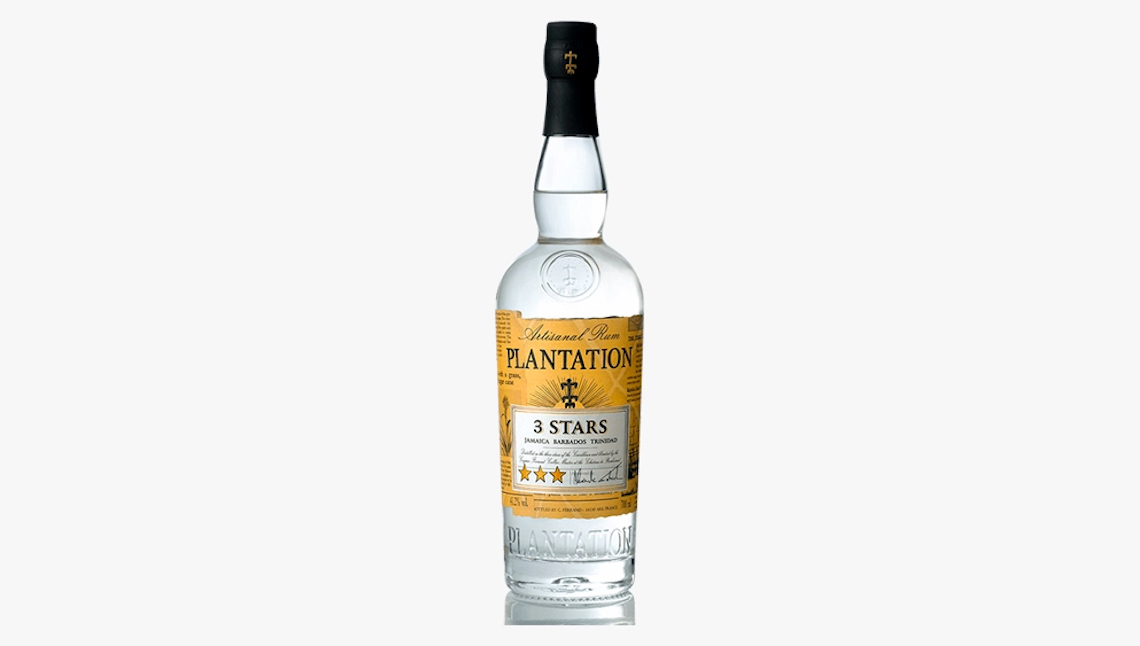
Best white rum under US$25
Plantation 3 Stars
The name refers to the three different countries from where this blended rum hails: Jamaica, Barbados, and Trinidad. The complex blend features pot and column still rums that range from unaged to 10 years old. Bottled at 41.2 per cent ABV, the filtration isn’t heavy-handed, as can be seen from the off-white colour of the liquid. Plantation gets a lot of grief from purists for ageing its rum in ex-Cognac barrels owned by its parent company, Maison Ferrand, and for sweetening some of its rums after distillation. While those factors definitely alter the flavour of the finished product, the distortion is pretty delicious. Light fruit (notably mango and pear) and floral notes show up on both the nose and palate, along with a healthy but not overwhelming dose of vanilla. The high-ester (read: funky) Jamaican rum in the blend is not as intense as some rummies may like, but what’s there makes up for what isn’t. And at less than US$20 for a bottle, it’s quite the bargain as well.
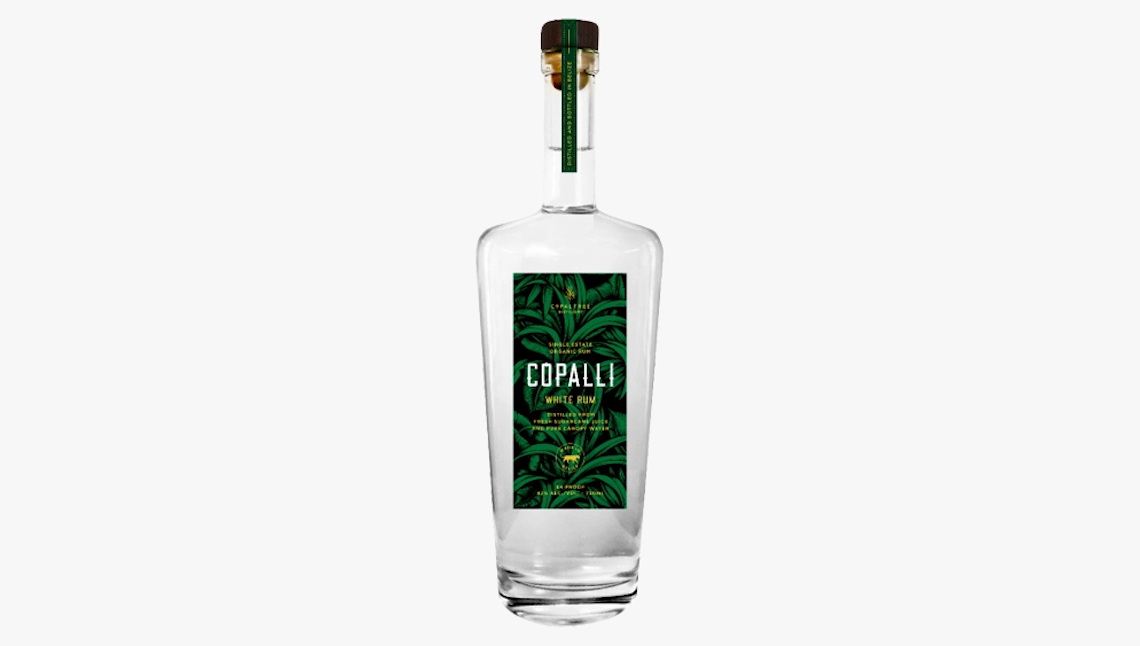
Best-flavoured white rum
Copalli Cacao
So many flavoured rums taste like the flavours were cooked up in a lab, using chemicals rather than natural ingredients. What makes Copalli Cacao stand out from the pack is 100 per cent organic roasted cacao nibs, sourced from the same Belizean rainforest where Copalli gets its sugarcane and distils its rum. The nibs are added to Copalli’s White Rum and left to infuse for several weeks, after which it’s distilled again. The result is a rich, intense flavour reminiscent of Belizean chocolate with berry undertones. And the base spirit itself is spectacular as well, using fresh cane juice for an agricole-style flavour that plays off the cacao beautifully. Great on its own or for adding chocolate undertones to a cocktail.
Frequently asked questions
What is the legal definition of white rum?
There isn’t one. There are no rum categories defined by colour. And of course, “white” rums aren’t really white—they’re clear, or in many cases off-white, tan, light yellow, or gold. It all depends on how (or whether) the rum is aged and how it’s filtered.
How is white rum different from dark rum?
Of course, there’s the colour, but the difference goes a lot deeper than that. When a spirit is barrel-aged, it picks up a lot of flavours from the barrel, whether it’s the dark caramel and toffee notes of the bourbon that previously occupied the barrel (most rums are aged in ex-bourbon barrels), the vanilla and dry oakiness from the wood or the peppery spice of the tannins in the wood. White rums can be bottled without ever having seen the inside of the barrel, so the flavour is much more influenced by the source materials and the fermentation. Other rums are aged and then filtered to remove the colour—and in the process, a lot of the flavour as well. The oaky and tannic notes all but disappear from most filtered rums. But as with dark rum, there’s an enormous array of flavours to be tasted in the white rum category.
Are white rums made to be used in cocktails?
Almost all white rums are designed for mixing, but the best ones, including the ones you’ve read about here, make delightful sippers as well. White rums differ from their aged counterparts because they may lack some of the flavours that come with barrel ageing, whether because they’ve been filtered out or because the rum hasn’t seen the inside of a barrel, to begin with. But the flavour spectrum of white rum is immense.
What is the difference between “rum” and “rhum”?
One letter. “Rhum” is simply how the French spell it. It’s true that certified rhum agricole from the French islands differs from most other rum in that it’s distilled from fresh cane juice rather than molasses, but there are plenty of agricole-style rums (no “h”) made elsewhere.
How did we choose the rums on this list?
We considered many different factors. Aroma, taste, finish, and mixability were of course paramount. But we also considered availability, since many of the world’s finest and most interesting rums are all but impossible to track down. And then there’s a matter of what we thought our readers would appreciate. There are plenty of amazing rums out there that smell like rotting garbage or burned rubber and taste like overripe fruit and vegetables. A lot of serious rum fans swear by them, and you’ll find one or two in this list, but for the most part, we chose rums we think you’ll enjoy—and they may expand your horizons in the process. And while lists like this are meant in part to provoke discussion and disagreement, we stand behind (and drink enthusiastically) every rum here.
Why should you trust us?
Tony Sachs has been writing about rum and other spirits since 2007, visiting distilleries and meeting the people who distil and blend rum to learn the techniques and the stories behind each one. He is a judge for several spirits competitions including the Ultimate Spirits Challenge, and in addition to close to a decade of writing for Robb Report, he’s written for numerous other publications, including Forbes, HuffPost, Whisky Advocate, and Esquire.
This story was first published on Robb Report USA
